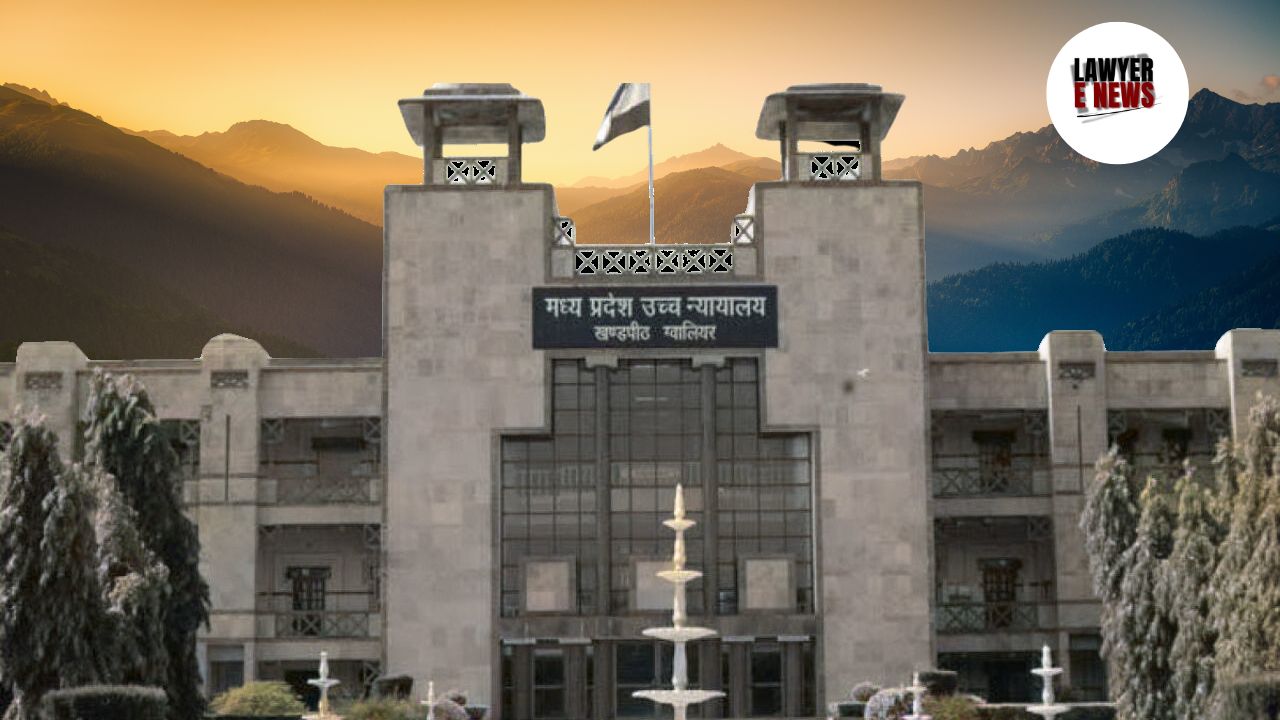-
by Admin
17 February 2026 2:34 PM



“A person's legal and fundamental right cannot be curtailed or side-lined only on account of failure of a machine to recognize him” — In a landmark ruling Madhya Pradesh High Court (Indore Bench) set aside the rejection of two candidates for the post of Assistant in the Life Insurance Corporation of India (LIC) due to biometric mismatches. The Court held that failure of biometric verification cannot override constitutional guarantees and basic procedural fairness, stating that a machine’s inability to identify a person cannot be the basis to deny them employment.
Justice Subodh Abhyankar, while allowing the writ petitions filed by Vinod Kumar Meena and Rachna Irwar, directed LIC to issue appointment letters within four weeks and declared the contested condition in the advertisement—regarding biometric mismatch being final—as unreasonable and invalid.
The petitioners had successfully cleared the written examination for the post of Assistant in LIC, notified under the advertisement dated 17.09.2019. Their biometric verification was successful at the time of entry into the examination hall, but failed during exit and again at the time of document verification. They were required to sign a declaration admitting that thumb impressions failed due to skin-related issues.
Despite these explanations, LIC rejected their candidatures by relying on the biometric mismatch report, supposedly prepared by Tata Consultancy Services (TCS). Crucially, this report was never shared with the petitioners.
The Court noted that the biometric mismatch did not cast any doubt on the identity or integrity of the petitioners. Justice Abhyankar observed: “It is nobody's case that the petitioner is not the person who had given the entrance examination, or that he or she has played fraud in any manner with the respondent.”
On the question of whether TCS’s biometric decision could be deemed final, the Court held: “Such a condition that biometric verification by TCS would be binding on the petitioner does not stand the test of judicial scrutiny and of reasonableness.”
The judgment sharply criticized LIC’s approach of failing to furnish the biometric report: “Non-furnishing of the report… has led to violation of principles of natural justice and has prejudicially affected the petitioner’s interest.”
“Procedure Is the Handmaid of Justice, Not Its Mistress”
In what could become a foundational precedent for all biometric-related rejections in public employment, the Court stated: “Although biometric verification is necessary to eliminate discrepancies, there are occasions when it cannot be done due to myriad reasons beyond the control of the parties.”
It further emphasized: “A person's identity is not lost when he is not recognized by a machine… his claim has to be verified on the basis of documents like Aadhaar, PAN, Driving License, etc.”
The Court categorically rejected the idea that technical failure can supersede merit and fairness, reminding authorities that justice must be humane and reasoned.
Final Directions:
The Court quashed the impugned orders dated 29.02.2020 and directed LIC to:
Verify the petitioners’ identity through valid documents.
Issue appointment letters within four weeks.
Extend all consequential service benefits, except for backdated monetary benefits.
“The petition stands allowed. The impugned order is hereby quashed… Appointment letter to be issued with all consequential benefits.”
This ruling sends a powerful message that technological procedures cannot override human rights, and public authorities must balance efficiency with fairness. The Court has effectively upheld the principle that a machine’s failure is not a person’s fault, and institutions must not be permitted to use such failures as a reason to deny rightful opportunities.
Date of Decision: 25 March 2025
